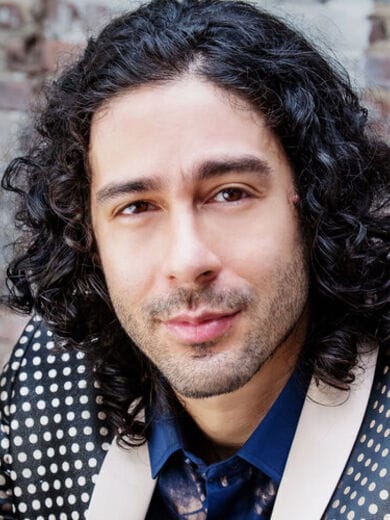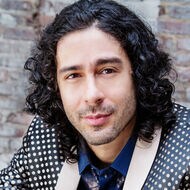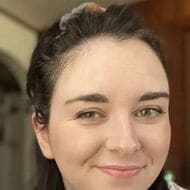
Teaching Finance as an Act of Social Justice
Personal finance education is more than numbers; it’s a tool to make change.
“When we are kept in the dark about our finances, we lose our autonomy and power. When we are taught that money is a taboo, we hide from ourselves and whisper about our mistakes instead of questioning why.”
— Pamela Capalad, CFP, founder of Brunch & Budget and co-founder of Pockets Change
Why don’t more of us learn about money when we are young?
In one of our personal finance workshops just a few years ago, a young girl walked into the room staring sadly at her feet. She hesitantly shared, “I’m bad at money. Today is going to be hard.” At 6 years old, she had decided that money was not now and would never be her thing. We’d like to say that was a rare occurrence, but meeting with thousands of students and educators each year it’s a worry that many of us carry. Too often we buy into the dichotomy of being “good” or “bad” with money. Instead, we need to collectively question why the financial systems in our lives leave us feeling confused and ashamed.
Financial education is an intergenerational tool for self-care and social justice. Talking and teaching about money is a revolutionary act with the power to transform lives and communities.
Our youth are making choices about their financial futures in a world where it would take 242 years for the average Black family to catch up to the wealth of a white family today. That inequity carries into our education system, in which only 7.4% of Black and brown students and 7.8% of low-income students have access to a required stand-alone personal finance course for graduation. This lack of access to financial education underscores how little attention is paid to personal finance as a critical component of students’ long-term outcomes in life.
Why Talk About Money
The impact of financial education goes far beyond our wallets; it promotes overall well-being. Early and ongoing financial education can increase intergenerational outcomes, including the skills to manage decision-making, navigate the unexpected, and chart the path to reach goals consistently.
Starting conversations isn’t that easy, though—money is emotional. Studies show that thinking about money is stressful and talking about it is even more stressful. We form our relationship with money by age 7, at the same time our early literacy skills are setting the stage for future success or challenge.
Unlike reading skills, however, families are not receiving support and encouragement for having financial conversations. Educators are not widely receiving school- and district-level support to integrate personal finance learning moments across subjects and grade levels. Currently, only six states require a stand-alone personal finance course for high school students to graduate. While a single course on personal finance has value, it’s only part of a lifetime of change. And far too many of our students have little to no access to financial education.
Where we spend our money is a representation of what we value. We always put our money where our mouth is. When state and local mandates are not in place it is harder to secure the investment in time and resources for increased financial education accessibility. This was evident in the data from the PISA 2018 financial literacy report showing connections between race, wealth, access to financial education, and financial literacy learning outcomes. Students from low-income communities consistently scored lower on financial literacy assessments than peers from wealthier areas. Simultaneously, school districts serving communities of color showed lower access and implementation of financial education programs. Over the past year, COVID-19 has hit hardest in marginalized communities, where the current economic system is already ignoring or taking advantage of individuals.
We’re failing our kids and our communities if we don’t have deeper conversations about finance and what makes this knowledge personal and powerful. Money management should not be a single course for a select few. Creating brave spaces for financial conversations necessitates a shift in our classrooms, communities, and country.
The Racial Wealth Divide
Money and race are inextricably linked. In order to talk about money we also need to talk about the racial wealth divide. It’s referred to as a divide rather than a gap because it was intentionally manufactured and not the byproduct of a competitive society. The invention of race allows people to profit from the disenfranchisement of others while positioning our economy as a ‘race’ in which winners are determined by merit and hard work.
The personal responsibility/bootstraps/individualism narrative not only puts the blame on marginalized communities, it obfuscates the reality that our economy is built on a legacy of systemic racism. This includes inhumane practices and policies such as phrenology, minstrelsy, redlining, segregation, and mass incarceration that are not discussed in depth or taught at length in many communities. The result is that stereotypes are left unchallenged and the policies continue in different forms. An excuse for chattel slavery was the myth that African men were strong but savage. Today Black boys are seen as older and less innocent. They are more likely to be punished for the same behavior as white students, which feeds the school-to-prison pipeline. Even if they avoid incarceration, students who don’t finish high school tend to have significantly lower income than graduates. Little is done to address the systemic issues, because the prevailing myth is that people of color don’t prioritize education or savings, despite overwhelming evidence to the contrary. It’s a legacy because it lives on.
Generations of Black Americans have been systematically cut off from opportunities to accumulate wealth and continue to be underserved, underrepresented, and underpaid. That's why the divide continues to widen. The Institute for Policy Studies believes that if immediate changes aren’t implemented, median wealth in Black families will be zero by 2053.
Change the Way Finance Is Taught
Effective financial education isn’t a one-time event. Tackling the issue of financial education inequity and addressing the racial wealth divide is about creating solutions that scale across communities. By integrating financial topics across subjects and grade levels we can build students' habits of critical questioning of financial systems and support a culture shift of real, open, and empowering money conversations.
Bringing money conversations into our classrooms and communities sparks change that crosses generations and builds a brighter future.
Within our classrooms, we have the ability to lower students’ levels of stress about discussing money and increase the frequency of these conversations among peers and families. Teaching financial literacy is an important step toward financial wellness, self-efficacy, and economic mobility. Increasing access to financial education is essential to building a more equitable future. Together we can break down barriers and let each other know that money is a tool and a process—you’re not wrong, you’re not bad at money, and you’re not alone.
How Can You Make Change?
- Meet with a certified financial counselor for free. Explore your money stories and take steps to create a financial plan that works with your values, goals, and life.
- Start money conversations with your students. Create space in your classroom to investigate the history of financial systems, question how systems work, and spark conversations that make finance personal.
- Advocate for increased access to financial education. Join teachers and parents from across the country in promoting the importance of financial education.
- Incorporate hip-hop into your financial literacy instruction. Find a playlist of classic and contemporary hip-hop songs that help students break down financial concepts and build positive money habits.

Andrea Ferrero is the co-founder and executive director of Pockets Change, a nonprofit that provides curriculum, workshops, and professional development to build financial resilience through hip-hop pedagogy. By connecting hip-hop and finance, Pockets Change develops an understanding of ourselves and our relationship with money. The program supports youth in taking agency in their personal financial decisions through peer conversations, unpacking systems, developing habits, identifying personal values, and advocating for what they want now and in the future. Follow @PocketsChange.

Brian "Dyalekt" Kushner is a hip-hop MC and the director of pedagogy at Pockets Change, where he uses hip-hop pedagogy to demystify personal finance and help students take control of their relationship with money. He’s rocked (performed/taught/keynoted) everywhere from conferences like AFCPE and Prosperity Now, to stages like SXSW and the Oregon Shakespeare Festival, to classrooms that range from Yale to your cousin’s living room. He also co-hosts the Brunch & Budget podcast, which discusses personal finance and racial economic inclusion. Follow @dyalektraps.
We want to hear your opinions! To submit an idea for an Opinion piece or offer feedback on this story, visit our Suggestion Box.
The opinions expressed in this piece, and all others in our Opinion section, represent those of the authors and do not necessarily reflect the views and opinions of the Teach For America organization.
Sign up to receive articles like this in your inbox!
Thanks for signing up!
Content is loading...









